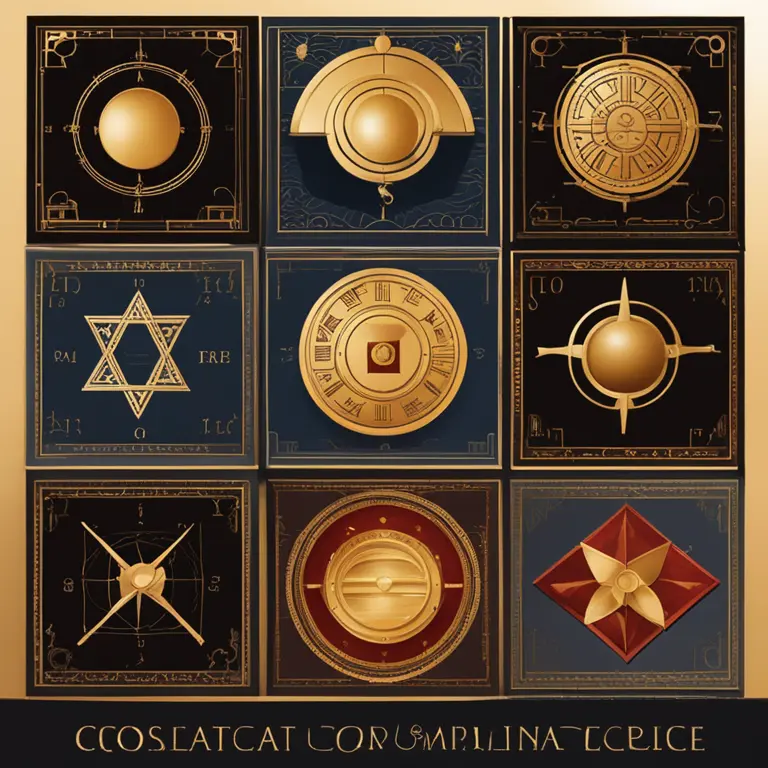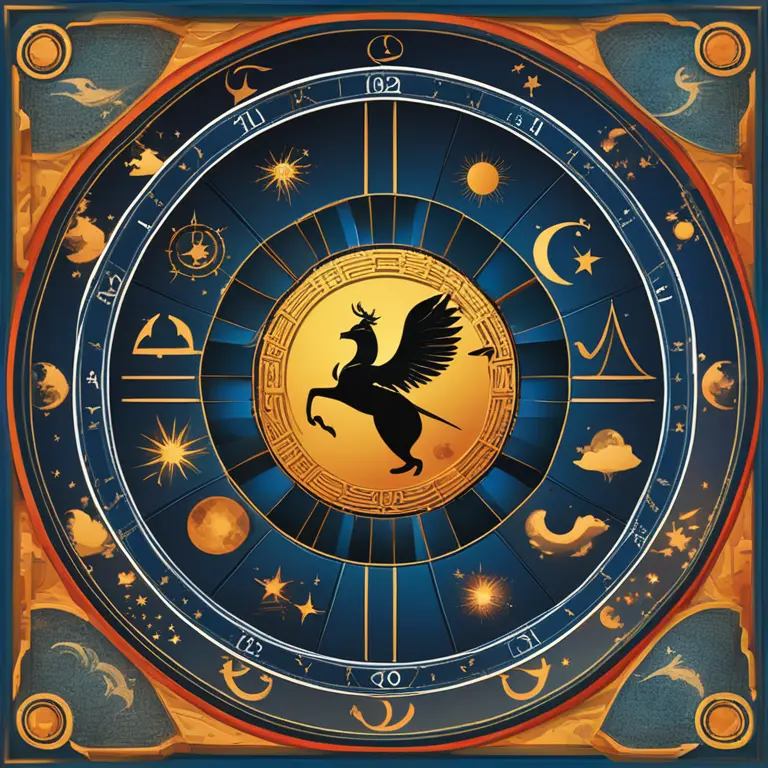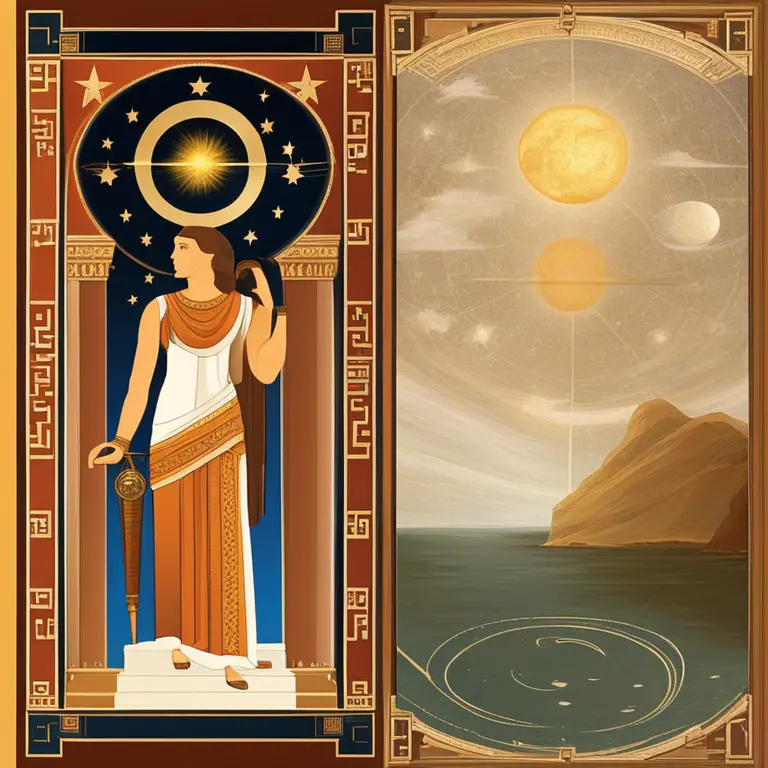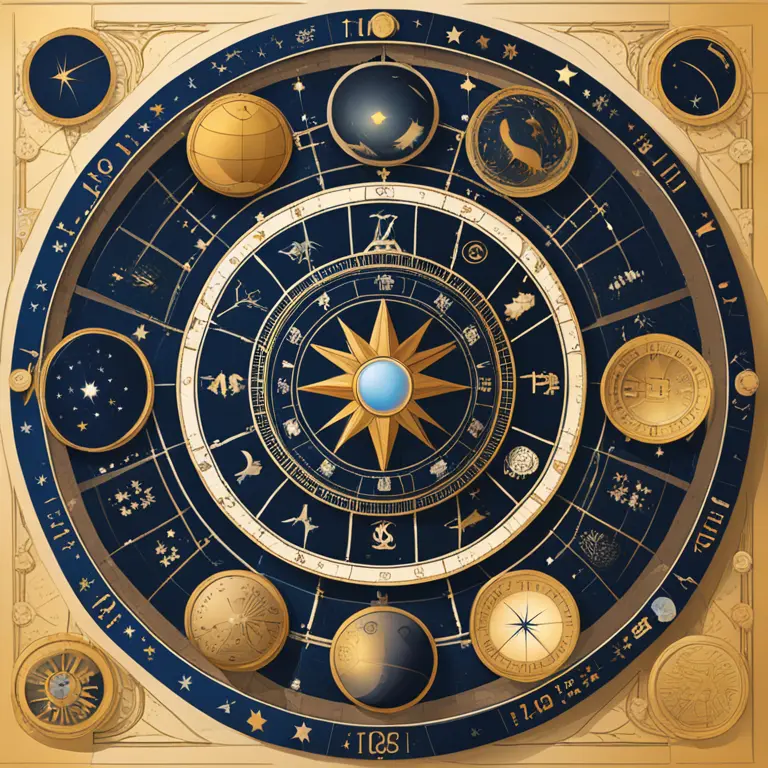
The Roots of Zodiac Signs: An Astrological Journey
The article explores the origins of the zodiac signs, connecting ancient practices with modern astrology.
article by Priya Deshmukh
Historical Astrology: Zodiac Emergence
The story of zodiac signs begins in ancient times when astrology and astronomy were inextricably linked. The zodiac, a celestial coordinate system, is often thought to have originated with the Babylonians in the 5th century BCE. They divided the sky into 12 sections, each associated with a constellation through which the sun, moon, and planets appeared to travel. This is known as the ecliptic. The use of these constellations provided a way to measure time and create agricultural and ritual calendars, essential for ancient civilizations.

Ancient Greek Influence and the Zodiacal Circle
As ancient Greek astronomers, such as Ptolemy, began to study the stars, they adopted and expanded upon Babylonian astrological practices. The Greeks contributed the naming of the zodiac signs and further integrated the concept into their mythology. Each sign was given characteristics based on the shapes of the constellations and stories from Greek mythology. This melding of science and story created a rich tapestry of meaning which has been handed down through millennia, evolving into the horoscopes we are familiar with today.

Roman Contributions to Zodiac Symbolism
The Romans also played a pivotal role in the history of astrology, adopting and Latinizing the Greek zodiac and ensuring its survival through the ages. They continued the tradition of ascribing traits to individuals based on their birth sign, a practice which persists. The Romans named many of the planets after their gods, which added another layer of significance to the astrological chart—a person's character could be influenced by the planet that governed their sign.

The Zodiac and Medieval to Modern Times
Throughout the medieval period and Renaissances, astrology flourished, influencing everything from medicine to politics. Despite the rise of science and the church's questioning of astrology, the fascination with zodiac signs persisted. Moving into the modern era, astrological practices underwent a sort of renaissance themselves, with new age movements and a widespread desire for self-knowledge and reflection sparking renewed interest in the ancient art, perpetuated by digital connectivity and accessibility.

The Zodiac Signs in Contemporary Culture
Today, the zodiac signs have permeated every level of popular culture and have been adapted to reflect modern sensibilities and psychological insights. Astrologers continue to draw from the foundational knowledge of ancient astronomers while providing interpretations and forecasts that resonate with contemporary audiences. Despite the age of the zodiac, each year offers a new context, and predictions for 2024 and beyond are being crafted with an eye on current and future celestial alignments.
An Expanding Universe: Astrology's Future
As we look ahead, the zodiac signs continue to provide a source of curiosity and introspection. Astrology promises to evolve further, perhaps even incorporating discoveries from space exploration and scientific advancements. Regardless, the enduring legacy of the zodiac is a testament to humanity's ceaseless quest for meaning in the cosmos, an endeavour that will likely persist for as long as people gaze up at the stars.
Published: 2/5/2024
Modified: 2/5/2024
More predictions
Come back here soon to learn more about yourself and your future


The Astrological House System: Core Spheres of Life
Delve into the foundation of astrology through the house system – spheres of influence guiding your path in the cosmic blueprint.


The Influence of Dominant Houses in Astrology
Discover how dominant houses in your astrological chart shape your personality, life path, and experiences through their profound astrological influence.


Astrology's Architecture: Houses and Ruling Planets
Delve into the heart of astrology through the foundational concepts of houses and their ruling planets, a guide to the cosmic infrastructure influencing our lives.